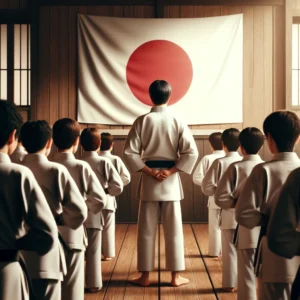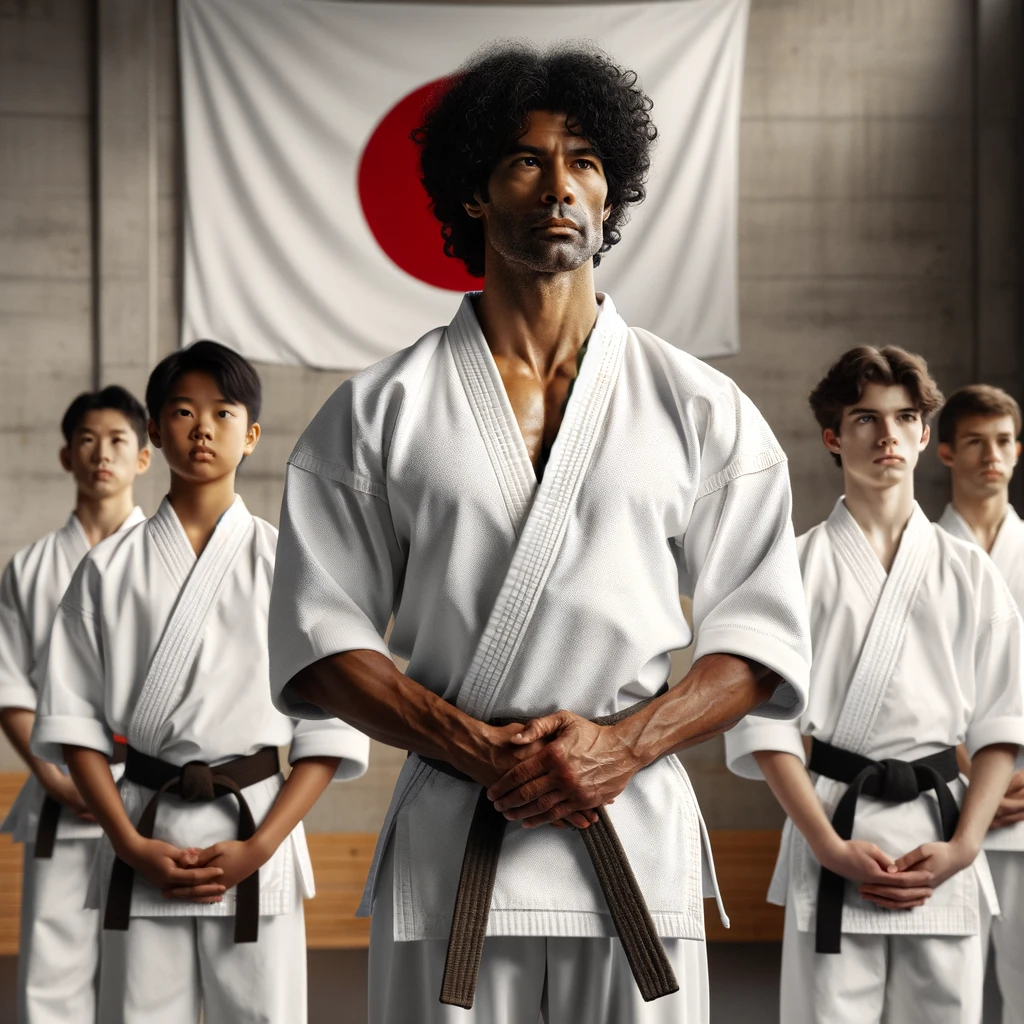Ōsu, Ōss, Ōssss! 押忍: “The Ō word”…
All Gojuryu Network (www.gojuryu.network) & SKSV (Gojuryu.net) cross-post
By Johnpaul Williams – April 1, 2024.
The Ōsu Conundrum: Navigating the Nuances of a Traditional Karate Greeting In the world of traditional Karate, few words are as ubiquitous and yet as misunderstood as “Ōsu” (押忍). Originally penned for the Gojuryu.net (the Gojuryu Network) in a March 2003 commentary, this article delves into the complexities and cultural nuances of a term that has transcended its martial origins to become a global phenomenon.
A Brief History of Ōsu The term “Ōsu” is derived from the Japanese verb “osu,” which means “to push,” and the noun “shinobu,” which signifies “endurance” or “perseverance.” It was first adopted by the Imperial Japanese Navy (大日本帝国海軍, Dai Nippon Teikoku Kaigun) and later popularized in the martial arts world by Kyokushinkai (極真会) and its founder, Masutatsu Ōyama (大山倍達). Ōyama’s seminal work, “The Spirit of Ōsu” (押忍の精神, Ōssu no Seishin), further cemented its place in Karate lore.
The Usage of Ōsu: A Personal Anecdote Imagine walking into a friend’s Dōjō (道場), greeted by a chorus of “Ōsu” from his students. This scenario highlights the term’s role as a respectful acknowledgment, akin to “yes, sir.” However, the frequency of its use can vary significantly between different styles and schools of Karate. For instance, in a Shitō-Ryū (糸東流) Dōjō, you might notice a more restrained application of “Ōsu,” reflecting a nuanced understanding of its appropriate context.
The Overuse of Ōsu: A Cautionary Tale The overuse of “Ōsu” can lead to a dilution of its meaning. In some Dōjō, it becomes a catch-all response for everything from greetings to affirmations. This indiscriminate usage can detract from the term’s original intent, transforming it into a mere filler word devoid of its intended respect and significance.
“It is an important Japanese Value. Ōsu means ‘Endure and suppress yourself. It should not be used frivolously”
Tasaki Shūji 田崎修司 – Founder of Gōjū-Ryū Karate-Dō Seiwakai 剛柔流空手道誠和会
The Cultural Context of Ōsu The term’s origins are steeped in Japanese military and macho culture, where it was used as a shorthand for “Onegai shimasu” (お願いします), a polite request or expression of gratitude. However, its adoption in martial arts has given it a broader, more universal appeal, transcending its initial context.

Sensei and students at the dojo
Navigating the Use of Ōsu in Japan
In Japan, the use of “Ōsu” is generally reserved for specific contexts, such as within certain Karate Dōjō or among male athletes. It is considered impolite and overly casual in many other settings, particularly when addressing seniors or in formal situations. Understanding this cultural nuance is crucial for foreign practitioners visiting Japan.
When Is It Appropriate to Use Ōsu? “Ōsu” should be used judiciously, primarily as a sign of respect or acknowledgment in a martial arts setting. It is most fitting during training sessions, competitions, or when acknowledging a well-executed technique. However, its use should be limited to avoid diluting its impact and meaning.
Ōssu is considered impolite in general Japanese language. Especially directed to your seniors, it can possibly be taken or notated as ‘I don’t have the time to address your correctly’. Because of this, I offer this suggestion, when in Japan 日本 follow the lead of the Nihonjin there to help you. Fujisawa Orlando 寛 – Okinawa Shōrin-Ryū 沖縄 松林流 Brazil
The Global Perspective: Ōsu Outside Japan Internationally, “Ōsu” has become a symbol of camaraderie and spirit within Karate Dōjō, often used to foster a sense of unity and respect among practitioners. While its use may be more liberal outside of Japan, understanding its roots and significance can enhance its meaningful application in a global context.
The Verdict on Ōsu: Use with Discretion In conclusion, “Ōsu” is more than just a word; it is a reflection of the values of respect, endurance, and discipline that are central to Karate. While its use has evolved and spread globally, maintaining an awareness of its cultural and historical significance is essential for preserving its integrity. As with any aspect of traditional martial arts, understanding and respecting the context is key to its proper application.

